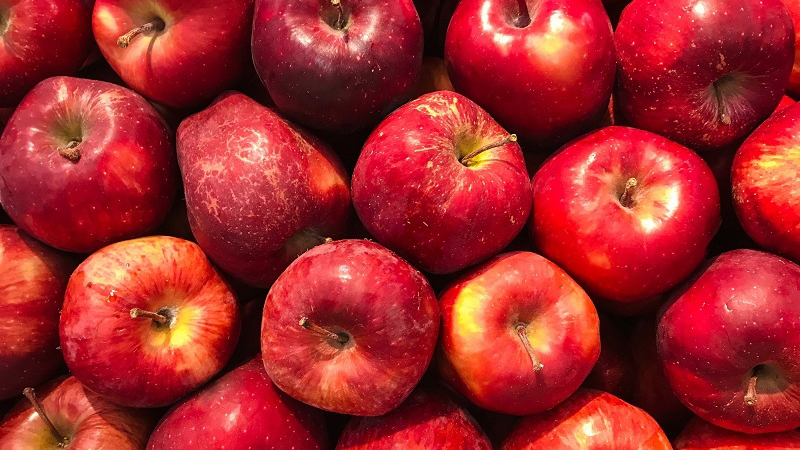Apple Producers Named In Antidumping Ruling
The Secretariat of Economy (SE) in Mexico published the results of a preliminary antidumping investigation against imported apples from the U.S. As a result of this resolution, the Mexican government is requiring provisional duty payments.
The Regional Fruit Producers Association from the State of Chihuahua (UNIFRUT) requested an antidumping investigation against the producers and exporters of apples from the U.S., because they believed U.S. apples were sold in Mexico for less than fair value to the detriment of growers in Chihuahua. The petition was delivered to the SE on Aug. 14, 2014. On Dec. 4, 2014, the Mexican government announced it would begin an antidumping investigation on imports of apples from the U.S.
In the official notice, the SE stated there is sufficient evidence to support the claim that imported of apples from the U.S. were sold at discriminatory prices in Mexico.
The investigation resolution states
- Imports of apples from the U.S. were made with dumping margins of up to 20.82% during the period of investigation. Such imports represented 98% of total imports.
- The imports investigated registered growth both in absolute terms and relative to the market size and domestic production over the period analyzed. This resulted in the displacement of domestic sales and a larger share of U.S. imports in the Mexican market.
- The prices of the imports investigated decreased during the investigation period and were lower than the average price of domestic sales in the months previous to the harvest during the period investigated.
- Imports of apples caused the deterioration of relevant indicators of the Mexican apple industry, production in the period analyzed and in the period investigated. The share of domestic sales and production in the Mexican market, the income from total sales and the domestic market, as well as gross profits and gross operating margin were impacted.
The projections provided by UNIFRUT to support the analysis of threat of injury are based on a reasonable methodology and historical figures for both imports and economic and financial indicators of the domestic industry, and allows the SE to observe a probability that in case no antidumping duties were imposed, an increase of imports would aggravate the injury to the domestic industry.
U.S. exports are several times the size of the domestic Mexican market, and U.S. apple exports to the Mexican market were increasing in absolute and relative terms, and were made at low prices.
According to the SE, although there could be other factors causing injury to the domestic industry besides the imports under investigation, the presence and behavior of the imports with price discrimination, and prices at which imports were made, had a direct impact on the performance of various indicators of the domestic producers.
Due to the large number of U.S. producers/exporters of apples to Mexico, SE limited its examination in the antidumping investigation to the 11 largest U.S. producers/exporters of apples during the period of investigation. The SE decided to impose the following preliminary antidumping duties:
- Broetje: 17.22 %
- Chiawana: 8.27%
- CPC: none
- Custom Apple: 5.55%
- Evans: 2.44%
- Gilbert: 7.39%
- Monson: none
- Northern Fruit: 9.45%
- Stemilt: 10.14%
- Washington Fruit: none
- Zirkle: 20.82%
- Producers/exporters not part of the sample: 7.55%
- All others: 20.82%
Preliminary antidumping duties started collection on Jan. 7, and will remain in force until a final determination is reached. Preliminary duties may be paid or guaranteed subject to a final determination. According to SE, interested parties may file written comments on this preliminary determination within 20 business days of its issuance directly to Mexico’s investigating authority:
Unidad de Prácticas Comerciales Internacionales (UPCI)
Insurgentes Sur 1940, planta baja (área de ventanillas),
Colonia Florida, C.P. 01030,
México, Distrito Federal MX6001
U.S. Industry Reacts to Mexican Antidumping Ruling
Under the preliminary determination, individually identified packers will face a tariff ranging from zero to 20.82% on apples exported to Mexico, with an average of 7.55% for most companies. Industry insiders from Washington offer some comments about the recent antidumping ruling:
“We remain in the process of accumulating information in order to evaluate what steps Northwest Fruit Exporters will make on behalf of industry. The preliminary antidumping determination was published against packers,” Fred Scarlett, Manager of the Northwest Fruit Exporters, said. “Growers should discuss how it will affect them with their packer. As for how this ruling will affect the industry, it is too early for me to make an informed comment. We are disappointed.”
“While we are still evaluating the ruling to determine next steps, we believe that these antidumping duties are unjustified, and are disappointed that the Mexican government chose not to terminate the investigation and dismiss the petition,” the Northwest Fruit Exporters said in a statement.
“Obviously we are dissatisfied with any imposed duty from Mexico (Ministry of Economia) that we feel lacks justification – we stand firm in knowing the Washington apple industry has done nothing to deserve this action,” Todd Fryhover, President of the Washington Apple Commission, said. “I can’t predict the financial impact today, only time will tell. Ultimately the Mexican consumer and Washington grower will pay for this imposed duty, and the Washington Apple Commission will continue to prioritize our promotional support to increase per capita consumption of Washington apples in Mexico – our No. 1 international market.”
“Anything that makes it more difficult to send fruit to our largest apple export market has to be a concern for growers,” Jon DeVaney, President Washington State Tree Fruit Association, said. “Because the duties vary by shipper, the total impact on the industry is hard to estimate at this point.”










